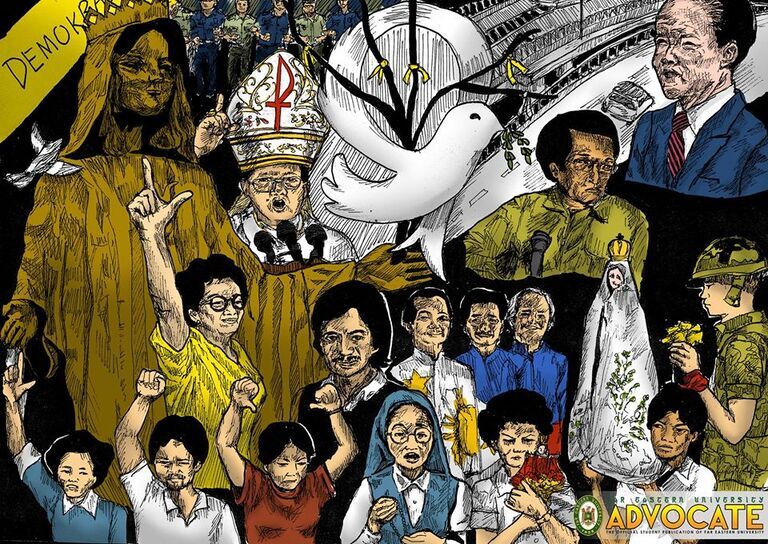
FEU faces uniform production difficulties due to limited resources
- February 22, 2023 08:46
FEU Advocate
May 09, 2025 19:17

The chance to progress fails to see the day when a profit-driven institution like Far Eastern University (FEU) disregards the value of student leadership—voters are forced to be apathetic on school politics.
In the 2024 University Elections, the voter turnout declined to 36.46 percent or 8,063 out of 22,115 voters from the prior term’s 44.79 percent or 10,576 out of 23,615 students. The issue is even more apparent in IARFA and IE wherein the student participation did not even surmount 20 percent, declaring failures of election.
Such numbers are not just statistical dips but a clear sign of decline in democratic engagement. When only a fraction of students exercise their right to vote, what unfolds is not governance, but performative politics that fail to represent or serve anyone.
This silence is not neutrality, but a betrayal of every student unheard and every change that could have been realized. The institution loudly parades their commitment to civic engagement, but their efforts fall woefully short, reducing elections to mere rituals instead of opportunities for real empowerment.
It is not that students do not care about leadership or change. They have simply stopped believing the system can deliver either—the same system that convinces them their voices are powerless.
Instead of inspiring action, these institutions trap students in apathy. Suffocating not just their voices, but their very will to vote, to question, and to demand a better system.
Elections feel performative when petitions are ignored, and demands are met with silence. When education is treated as a commodity, when bureaucracy restrains initiatives, and when student participation is reduced to reactionary tokenism, apathy is not born but forced.
The very curriculum mirrors a neoliberal system, prioritizing obedience over inquiry and conformity over critical thinking; it conditions students to comply rather than challenge the status quo. As a result, even though many stay informed, they still refrain from voting, because whether in campus or national politics, the system feels rigged against real change.
Structural barriers, like insufficient promotion from COMELEC and a lack of compelling candidates only deepen the disinterest. These thrive in a repressive climate where student movements are muted and political expression is boxed in. FEU students, who must fight against repression and fascism, are boxed into a system where even mobilizing feels surveilled, and speaking up is drowned in bureaucracy.
Apathy is a silence that dims resistance. It is a creeping crisis; born in campus silence, bred by indifference, and bound to haunt the ballots of a nation desperate for reform.
Overcoming apathy means tackling these barriers and empowering the voices of the student body—votes, no matter how few, can spark meaningful change.
Student governance may not mirror the structures of traditional politics, but institutions inevitably sustain the laws and ideologies that shape us, both within the struggle for academic freedom and liberation of the broad masses.
Inside a system programmed to silence dissent and weaken democratic participation, genuine student representation must be claimed through collective action to dismantle the very structure that denies it. Only when we clamor for the same call do we get the chance to make the University not only accommodate democratic ideals, but actively foster the rights of the student body.









